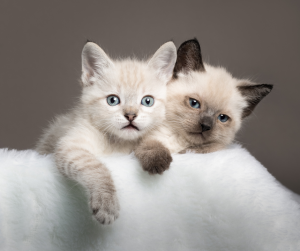Uncategorized
Why supplement your kittens with lactobacillus reuteri ?
Increasing research continues to show what we have known for many years, there are numerous benefits of lactobacillus reuteri to the gastrointestinal flora of all mammals. These benefits are wide ranging from development and maintenance of immunity, defense against infections, modulation of inflammation, regulation of glucose metabolism and potentially even the development of cancer.
Understanding where this bacteria comes from, how it is maintained and what factors influence the existence is a major/critical component of supporting these good bacteria inside the gastrointestinal flora.
The newborn receives its first exposure to gastrointestinal flora from mom before and during birth. Mucous membranes (oral, gastrointestinal, vaginal, teat canal) are abundant with microbial flora. The first exposure to flora is in the vaginal canal, as the baby passes through the vaginal canal. After birth the newborn gets flora from nursing. The mucosal membranes of the mammary gland and teat are populated with lactobacillus reuteri bacteria and pass to the newborn through suckling of mothers milk.
As the kitten matures GI bacteria are typically maintained through dietary and environmental sources. Consumption of small animals, contact with soil/plants and exploring the outdoors is how your cat would naturally maintain their gut bacteria. Supplementation of lactobacillus reuteri is especially important for indoor cats who do not have access to the outdoors.
Studies in humans have showed that the presence of lactobacillus reuteri bacteria has drastically decreased over the last few decades. This is likely due to the “westernized diet” low in fiber and high in fat and sugar. We can think of commercial cat foods as the cats “westernized diet” as they are not supportive of a cats natural flora.
In addition to all of the benefits of Lactobacillus reuteri in infancy, lactobacillus reuteri has been shown to be beneficial in the treatment/recovery rota virus diarrhea in humans. Other non-infectious causes of gastrointestinal diseases may also respond to Lr supplementation. Kittens and adults should receive Lr as part of the therapeutic plan for the treatment of gastrointestinal disease.

